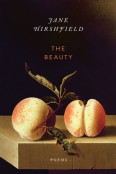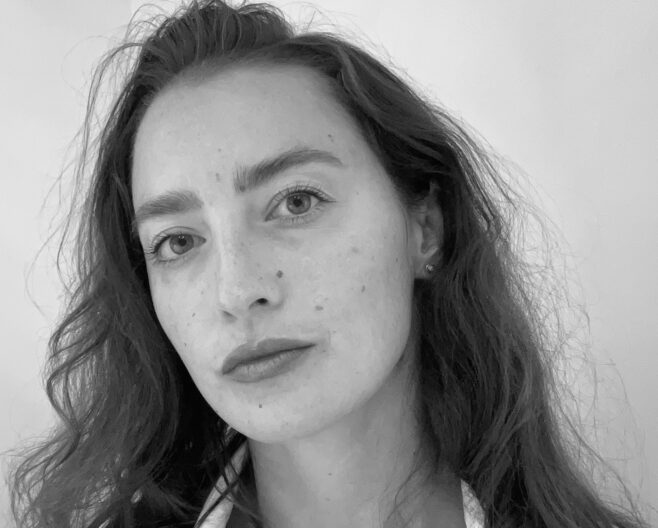“How do we live in the great meanwhile, in which all our lives take place?”
JANE HIRSHFIELD
Interviewed By: Kaveh Akbar
JH: Before we get started—you know much more about me than I know about you. Could you tell me a little about yourself?
KA: Well, I moved to Tallahassee not long ago. I'm in the PhD program for poetry at Florida State. I was born in Iran, but I moved to the United States when I was two. I’ve lived in Pennsylvania, New Jersey, Wisconsin, Indiana and now Florida. My dad is a poultry geneticist, so my childhood was moving from duck farm to duck farm. My mom is a microbiologist. Somehow out of that union came a poet.
That’s fascinating. It also sounds very lucky. I’ve spent a lot of time in recent years with scientists, and I’ve grown more and more to love what comes out of that interdisciplinary conversation, the meeting of vocabularies, and methods, and approaches. It enlarges the ranges of what’s possible to think, to feel, to say. And you’ve had such a conversation all your life, at the home dinner table.
Believe me, every meal was dense with that. I was very much on a path towards being some sort of hard science kind of guy for the first eighteen years of my life, and then I sort of tumbled headfirst into poetry and haven’t really emerged.
I hope your parents are glad.
Haha, they're coming around. Divedapper has been live for about a year and a few months, but I've been doing the interviews for two years. It’s been the greatest. Even if this was something that I was doing in a vacuum and it was just me and the poet talking with no one ever reading the transcripts, it would be immensely gratifying to me.
That brings up a question I’ve often pondered and asked others about: Do we do what we do for others or for ourselves? For audience, communication, community, to be heard, to effect change? Or does a writer work for herself, for himself, because they can’t not, because wording the world is a task they are seized by, because writing is the creature that runs across their path and they can’t help but pursue it?
I love that.
I think both are viable paths. Some lean one way, some the other, but both will be present. You can’t do things only for other people—the self must show up and be present, a self that is selfishly interested, that looks out of its own eyes and that hungers for its own language, and feeling, and thought, and shapes. And, conversely, even if you think you’re writing for only yourself, you are inextricably part of the larger world and larger community. Language is the species’ shared quarry and cache. Words, syntax, the music of meaning, were given to us, made for us, by others. They are a way to first find, and then to communicate. This is true even when the most private realms of self whisper to the most private realms of the self. Tongue and ear both are part of the wording.
Absolutely. This is something you talk about in the new book of essays, Ten Windows. Near the end of the essay looking at the use of hiddenness in poems, you say, “Some may believe that a creation unseen is wasted, its maker selfish.” You then lock horns with that idea, going on to say that first, there’s the utility to the maker, and that even the knowledge of the existence of something made but unseen has a kind of utility to the soul.
That is something I’ve long thought about. How there are poems that have never been published, poems I’ve never read and that perhaps no one but their writers have read, which still have the capacity to change the world. “The Poet,” from my fourth book, The Lives of the Heart, is directly about that. It envisions a woman writing—someone who may not have any of the good luck you and I share, who may not have access to journals or books, who may scarcely have enough electricity to power a single light bulb, or have paper, a chair, a pen—and it recognizes that what she is writing may well be the poems I most need. Even if I will never see them, that can be so, the way that, say, in America in 1847, people needed the poems of Walt Whitman. He was writing—but no one had a way yet of reading those poems, of even knowing that they existed. And still the world was already being altered by his pen’s ink.
What provoked that comment in Ten Windows, though, was a Cavafy poem, “For the Shop.” It describes a jeweler who keeps his most astonishing pieces hidden, selling only trinkets and baubles. Cavafy himself, during his life, sewed his poems up into private booklets and gave them only to a few friends. Yet his work helped fulfill the prophecy he made in another poem written about in the book, “Hidden Things.” Speaking— circumspectly—about his own circumspection, he writes, “Later, in a more perfect society, / someone else made just like me / is certain to appear and act freely.” Now we have Adrienne Rich, Vikram Seth, Jericho Brown, D.A. Powell, Ellen Bass, Carl Phillips. We have Mark Doty. We have legal same-sex marriage. What’s written first in privacy reverberates beyond the walls it’s housed in. What’s worded in privacy changes the world, and sometimes, for that to happen, an interval-time of hiddenness is one of the soul’s requirements. We live in an outward-facing time. But not everything can happen on YouTube. Some poetry, at least, must continue to preserve the interiority that allows the heart and mind its more tentative, and more tender, experiments.
Beautifully said. It loops around to another idea you’ve visited in your essays—that one of the jobs of the poet is to make poetry available for the times when it’s needed. When people lament that not every rider on the subway has a book of poetry in their lap, you point them to the fact that—to bring it back to Cavafy—at Jackie Onassis’s funeral, her lover Maurice Tempelsman read a poem by Cavafy, and the next day that poem was reprinted in every newspaper in the country. You’ve described that poem, “Ithaka,” as one that you’d long thought the perfect choice for a memorial service, because of the way it encapsulates grief while also pointing toward the lived life as what matters.
I was just talking about that story and poem last night, to a group of scientists. I got an email the next day from one saying he’d found the poem online and had already sent it to half a dozen friends.
That’s great. And if half of them send it on, it echoes.
And just there we have the actual, mostly hidden, life of poems. It can be dispiriting when you think about how a cat video can get 17 million views on YouTube. But cat videos and poems exist on different scales. One is a moment’s delight in the true funniness of the world we don’t control—that’s the essence of catness, their utter disdain for our human wish to control anything—and the other is, at its best, a vision-altering and sometimes life-saving transformation. Poetry’s effect on our lives resists counting, resists commodification. We can either bemoan that and think we’re losing some worldwide competition for attention at every moment, or we can say that the kind of attention poetry is going to be sustained by isn’t the kind that’s given to cat videos.
I think you’re right in saying that poetry resists commodification and that the metrics that we use to quantify a poem's import are inherently clumsy. We talk about book sales or other abstract things that don’t have any sort of referent in how many times a person revisits a poem, or how many people they show it to.
Right—book sales are what is countable, but poems don’t live at the unit of the book for me. We each can name the books that for us offered sea-change. But ten years later, what you most often talk about are the one, or two, or three individual poems that have stayed with you, the poems that remind, in times of brokenness, that there are ladder rungs, and the ones that remind, in times of complacency and forgetfulness, that there are hungers and fracturings that must not be forgotten.
And then, even when we talk about those few poems that haunt a life, half the time we’re only talking about a title, a line, a phrase. The few words that act like the sharp point of a large tool. Pound’s “What thou lovest well remains, the rest is dross.” Larry Levis’s “the ankle of a horse is holy.” Bishop’s slow-arrived at, “Even losing you...,” backlighting everything said before it. There’s all the mass and weight of the full poem behind the phrases, but the point of application on the human heart is the fine point of the chisel.
"The point of application on the human heart" is something that you might have to save for a poem.
I forget everything I’ve ever said. You’ll have to save it.
That’s a great superpower to have as a poet, though. You don’t have to be burdened by the anxiety of thinking, "Am I repeating myself?"
Ha, I am unburdened by that particular worry.
That’s wonderful. It seems to me that, with the increasing omnipresence of technology, the unit of the poem will continue to become what is exchangeable on a screen.
It does seem likely. The original purpose of sound-based poetry, before literacy, was to have something pocketable, portable, able to be carried accurately in memory before there were letters to write it down with. To have something that could be brought into light when needed and transferred to someone else when needed, precisely. Poems were memorable, which made them retrievable, exchangeable currencies of being and knowledge. The poem repositories of poets.org, Poetry International, or the Poetry Foundation website are doing the same thing. You can find the true coin of the realm, if you go looking for it. People who don’t usually think about poems can go online to look for one when somebody dies, or to look for one to read at wedding. Some go to look for a poem online when they find themselves in desperation or crisis, when they need some reassurance that the world is malleable and that they’re not totally alone in what they feel. Poems on the web are the ones they will find, you’re right, at least in this particular stage of human technology.
Yes! Poems revealing life’s malleability. In Ten Windows you say, “Like a chemical reagent, like water passing through limestone or a curious toddler, a good poem reveals, enters, and leaves altered whatever it meets.” And you say that it’s for this reason people turn to poetry in times of duress or bewilderment. You call it poetry’s metamorphic power.
Yes.
I love to think that, just as a carpenter builds a house for you to live in, the poet provides you with a sort of psychic reagent to move you from one state of consciousness into another. Reading your essays is almost like reading poetry.
Thank you. Almost all my essays begin as talks I’ve been asked to give. That means first, for me, coming up with a good question. I don’t know where that question will lead in advance. I write the essays to discover what I think about each essay’s particular question: what is originality, how is paradox used in poems, what are the gifts of hiddenness or indirection, how do poems work with grief, and shadow, and uncertainty? I want to find the concealed mechanisms by which good poems move us and allow us to move, the gears and wheels inside the clock’s and heart’s timekeeping. And I want to understand the qualities that allow poems to do the work that only poems can. How can something that leaves uncertainty firmly in place be what lets us go on inside our uncertain lives? How are very small poems able to be so vast in reach, and poems seemingly made of cold recitation bring us to tears? How can a poem move us newly, still, on its hundredth reading?
When I went to put Nine Gates together—the first book of essays, which came out in 1997—I suddenly felt the difference between a talk and something that’s going to be in print. It’s a difference of fixedness, but it’s also a difference of form. I realized I’d spent my life thinking about the distillation, and density, and surprising capacities of language in poems, but that I hadn’t developed a prose style at all. I wrote those first essays in a certain envy of people who could talk brilliantly without notes, trying to imitate off-the-cuff speech. I’d never put the sentences under any kind of metamorphic pressure. I then spent my fortieth year trying to learn how to write a decent prose sentence. When I teach poetry, one thing I often tell my writing students is that for every moment you ask of your reader’s attention, you must try to repay them with more. A good poem holds more than a gallon of water in a gallon-sized bucket. Once I understood that the same principles apply to prose, that’s when the writing of prose became not only arduous—I do find it terribly hard—but also interesting. And revising, in both poems and prose, becomes a task that brings pleasure, because new discoveries continue to be made, along with the simple, deeply physical, happiness of the eye and mind when the binoculars’ vision comes at last into focus.
Yes! I think it’s often easy for a writer to think, "I have something that needs to be heard and the world owes it to me to listen." When you find yourself on that plane of privilege as a writer, it’s easy to forget that you owe the reader delight, and joy, and music for their time, for the courtesy of their attention.
This goes back to what we were talking about at the start. Whether you think you’re working for yourself or for your eventual reader, the effect is the same: you are also giving yourself more than one cup of water in a cup-sized glass. I wonder if people still use that old-fashioned critical term, the intentional fallacy? It’s the pre-deconstructionist way to say that the author doesn’t always know what the words are saying. We’re talking here about a kind of intentional fallacy in another realm—does what writers think they know about why they write have anything to do with why or what they do? Donald Hall has a marvelous essay about this, called “Theory X Theory.” In it, Hall says that Eliot had to tell himself a story about how impersonal poems are, simply to give himself the camouflage to write them at all. It really doesn’t matter to me why a great poem was written. I just want to read the poem. I'm one of the few, it seems, who truly hope we never find out who it was Emily Dickinson fell so in love with. I want her to be able to keep her secret. Whatever that factual circumstance was, that's just the gossip. The gossip doesn’t matter. The poems matter.
I have literal goosebumps listening to you speak about that. It’s one of the reasons I go to your work, both the poems and the prose—the way you celebrate the bewilderment and the uneasiness. In Ten Windows, you write, “For those willing to let themselves feel it, any story leaves behind an uneasiness…Literature’s work, and particularly poetry's, is in part to take up the residue and remnant, to find a way to live amid and alongside the uncertain.” Occupying oneself with what is unknowable seems to be in keeping with the spirit of what it is to put pen to paper as a means of meaning making.
If a poem holds only what we already understand and are comfortable with, we wouldn’t need the poem. Not to write it, not to read it. What we need poems for is their way of pressing beyond certainty, arrogance, and comfort. When we are unseated from ego's throne, and we still have to find a way to live, when there is no chair or floor under us, what do we do? We look for what isn’t made of the simplest kinds of wood, glue, and joints. A poem is made of this world’s wood, glue, and joints—it’s still language, it’s still words, it still draws from our bodies and minds and this planet’s entire banquet of material and emotional and conceptual richness—but a poem is words somehow doing things that words can’t quite do. This allows us to think the unthinkable, to feel the unfeelable thing, to find ourselves and the world dismantled and continue to breathe, to live.
In one of Rumi's poems on bewilderment, there's the line, "Forget safety. Live where you fear to live." And that seems to be exactly what you've been talking about—a commandment to those who would aspire to create poetry.
Rilke offers the same. He’s so often talking about going beyond the orbit of what’s comfortable and finding a way to keep breathing in those further reaches. His poems are full of the words 'risk' and 'dare,' in the imperative verb tense.
I think both Rumi and Rilke had that God-ravenousness to them. To bring it back to your work, you’ve written, "Both writing and any spiritual practice are technologies to exceed your own capacity for presence. Both are learned by entering them over and over and both are without any arrivable-at destination." This is one of my favorite Jane Hirshfield-isms, I have it symbolically tattooed to my forehead. I love its conflation of writing and spiritual practice. I’m a sucker for that because, in my own practice, I see writing as deeply spiritual, a means toward a sort of cosmological orientation. And to say that they are "technologies to exceed your own capacity for presence" is just the perfect way to say that perfect thing.
Thank you. It is my experience of writing. And of practice. And of patience.
Talking about spiritual practice is difficult. People have so many different ideas in their minds, so many wildly alternative responses to the same words, that a conversation can turn to quicksand very fast. Barry Lopez and I once spent twenty minutes trying to find something we both felt we could live with for a panel session title. We ended up calling it “Reverence, Irreverence, and the Shiver of Recognition.” It made for a truly interesting conversation, getting to that. For Barry, reverence for the world is the right, and humble, stance. I can see that completely. But for me the word holds overtones of separation and duality, and so I was the one who kept pitching for including the Trickster’s ‘irreverence’ also. We both liked “shiver” and “recognition,” as I recall it. I don’t like using even the word ‘spiritual,’ though I know no other way to signal a certain quadrant of being. For me, any increase of awareness and openness can come under the umbrella of spiritual practice. A farmer’s close attention to the land, sun, and crops can be a spiritual practice. A truck driver finding the perfect moment to shift. Awareness, awakening, practice—it’s one continuous fabric. One word Barry used in our conversation that I found myself nodding agreement to was “numinous.” I later looked up its etymology: it comes from a root-word that means “nod.” No wonder I liked it—that simple, unworded "yes" is my version of “reverence.” But I think this is all getting very heady. I took us down this road, and I’ll back us up off of it. Let's get back to poems.
I’m always grateful to get into heady territory! We can talk about The Beauty, which is one of the books of the year that I haven't been able to shut up about. How old are the oldest poems in that book? How long did you work on it?
Come, Thief came out in 2011, and The Beauty came out in 2015, but of course there’s that interim year when the previous book is going through the stages with its publisher, and you’re writing new poems. So there's about five years of my life in The Beauty, with some of the poems going back to 2010.
There’s a definite shift of attentiveness, the way so many poems turn toward the vernacular of science. Scientific references are in your older work, too, but I think it’s more frequent and more on the surface in this book. You’ve talked before about how science has become the central vocabulary and explanation system of our age, and I think that awareness is very present in this book. And you were involved in some sort of science program with the University of California, right?
In 2013, I was the Hellman Visiting Poet at UCSF, the University of California’s San Francisco research sciences and medical school campus. I was with a neuroscience program, as their visiting artist. It was fantastic. I wish I could have spent more time with them than I did. We put together a couple of public events near the end of my time there, one on poetry and science, another on poetry and the end of life. For each of those events there was a cohort of poets, but also a cohort of scientists talking about what we know of the neuroscience of empathy, the neuroscience of language, what it’s like to work with the aging, with patients with various dementias, with those whose minds are turning toward death. So many people came that the campus fire department forced some to leave.
That's incredible.
I think many people are hungry for some sense of connection between different ways of knowing and feeling the world.
Could you talk about one of the science-based poems in the book?
"My Proteins," probably the most overtly scientific poem in The Beauty, was triggered by a New York Times Tuesday Science Section article about the discovery of how itch works: it has a dedicated neural pathway all its own, activated by a particular protein. That was fascinating to me, and my tongue loved the chance to put “natriuretic polypeptide b” into a poem. The poem ran first in The New Yorker, and the night before I taped it for their online site, I was racing to email biologist friends about the pronunciation of that first “a”—Was it long, or short? It turns out either is fine. But then there’s the question of C.P. Snow’s Two Cultures distinction. How can the discovery of how itch works be integrated into the human life of feeling and understanding, and how can our broader investigations of what it means to have a life of awareness include our physical, molecular, sometimes itchy, hands, mind, and heart? A poem starts with a fact, an observation, a sentence, an event that becomes the precipitating dust the raindrop then forms around. But if you want to be rained on, you need some way to bring it into life, into interconnection.
The poem went on to a further investigation—Who are we? What are we made of? What is experience made of? It wandered from the protein into the microbiome—the billions of tiny creatures coinhabiting our bodies whose existence and make-up affects our moods, our intelligence, our immune system. The poem ends with a question that haunted me during childhood: When you eat a sandwich, when does it stop being peanut butter and jelly and start being you? I’m not sure science will ever find that a solvable, or even an askable, question.
I love hearing you walk through the process, because the poem plays out in that process. It’s a good poem for showing new poets what it is that a poet does. We start with a phrase, or image, or a fact, and, in a state of deep attentiveness, the act of writing a poem is so deeply permeable to accident—to use your phrase—that it leads to these greater discoveries.
There are things within each of us that are iron filings waiting to be magnetized, if that makes any sense. The “My” poems at the start of The Beauty are each independent, each thinking about its own subject. It was only after quite a few of them had appeared that I realized they made a set that, taken as a whole, investigates self: its porous boundaries and permeability, its perishability and provisionality, its insolidity and its dear-ness.
Things get magnetized from many directions once you get started. Is your skeleton part of the self? There’s a poem about that. A new poem, since the book, looks at “My Doubt.” But then, the poem "My Species" is fundamentally a poem of war grief. It faces an equally long abiding question that runs through my work: What are we to make of the violence we do to one another? How will we ever find our way from this impulse, which seems to take on forms ever more intense, cruel, patently insane, even as it’s become increasingly likely we will wipe out the planet? But, where do I go with this grief in this poem? I go to cooking an artichoke. All the poem says is this: if you cook an artichoke long enough, what was hard and bitter eventually grows tender and sweet—if we cook ourselves long enough, might this also happen?
You draw your metaphors from whatever parts of the world you know. I’ve been cooking artichokes for forty years now, and for the first time, one was needed for a poem. We’ve been at war since 2003. Ten years of war, when I wrote that poem, and it still hasn’t ended.
I love so much of what you’re saying. It’s so true to my experience of how poems work and so concise, and well-encapsulated. These big, hard ideas.
Yes. We poets take large intransigencies and try to find a way to hold them, warm them perhaps, in a pocket of words, in a way that, at least momentarily, feels like you’ve changed your relationship to the question. It’s not that the question won’t come back again. It will. But for that moment, you’ve found something that gives you a changed understanding.
Absolutely. The poem "Snow in April" is another favorite, and it corresponds—
Really? No one has ever talked to me about that poem before.
Really! I have lots of favorites. I love "Twelve Pebbles," I love "Zero Plus Anything is a World." But "Snow in April" opens so beautifully with, "'There, there,' the awkward uncle / comforts / the crying infant." And then, "'There, there,' he repeats, / agreeing: / Here, here is the only possible problem." That seems like everything to me.
You put a poem in a book because you yourself believe it holds something worth the ink, but sometimes you don’t know if anybody else ever gets it, or notices, or cares. Hearing this response to that poem makes me happy.
Well, that’s great. I can’t speak for anyone else, but that’s one of my favorite of your poems period. It's so beautiful, and simple, and true to me. I don’t mean to put words in your mouth, but the poem seems to be talking about what we hope to do with language versus the fundamental conflict of our situation, and the friction of the two grinding up against each other.
Thank you, again. Somewhere behind the poem, there’s also the question of what the difference is between there and here. There's a big, obvious difference, of course. We think we know what it is. But why then do we say, "there, there" when we’re comforting someone? It’s a weird thing to do, and a weird use of language. Some linguist might be able to explain it. But for the purposes of the poem, I found poetry’s own resolution. The poem ends with, "Soon now, there and here / will both move along, / a lullaby about snow falling in a snowy pasture." The child will fall asleep comforted, right here, and the distinctions between there and here, the outside problems, and the fundamental discomfort of being alive, and the largeness, the mystery, and the terror of immediate existence, will, for a moment at least, blessedly vanish. The child gets to sleep. And the uncle gets to feel okay, too.
The uncle gets to feel accomplished. I’ve been that uncle. I have a niece for whom I have been that uncle, just sort of impotently saying, "there, there" as she cried away.
We so often feel impotent, don’t we? We look at so much in this world that seems like it’s added, unnecessary pain, or we can look at the necessary, unavoidable pain, for that matter—everybody is going to die, everybody is going to get old and ill, justice will never be perfect, hunger will never be ended—and there’s so little we can even begin to do about it. Some action is possible. But often, amid the impotence and suffering, the only thing we can do is find those moments of grace which allow us to agree to the whole thing, the whole difficult journey, which will end in something that most of us aren’t generally racing toward.
At least not willingly or deliberately.
And yet we will—we will have to—arrive at our own story’s ending, at everyone’s stories ending. How do we live in the great meanwhile, in which all our lives take place? I think poems help with that.
Interview Posted: March 21, 2016
MORE FROM DIVEDAPPER. (Drag left)
























































































